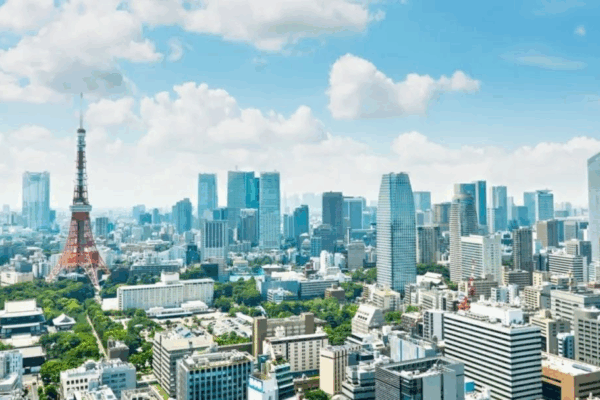
The "World's No. 1" has also become a Hong Kong resident!
2025-01-06
Hong Kong Investment Immigration Threshold Lowered Again! Who will benefit?
2025-01-10During his visit to Beijing on December 25, 2024, Japanese Foreign Minister Tsuyoshi Iwaya announced theVisa liberalization measures for Chinese citizensIt is designed to promote economic and humanistic exchanges between China and Japan.
These measures echo China's reintroduction of visa-free short-stay visas for Japanese citizens from November 2024 onwards.

01
Relaxation of visa policy for China
Japan's Foreign Minister Tsuyoshi Iwaya indicated visa liberalization measures for Chinese citizens during his visit to Beijing on December 25, 2024, according to Nihon Keizai Shimbun.
Specifically included:
- Establishment of a tourist visa valid for 10 years
- Extension of the number of days of stay for group travel visas from 15 to 30 days
- Relaxation of the application conditions for 3-year visas, which previously stipulated that if you had two date records within three years you could apply for a 3-year visa without assets, and this time it has been relaxed to two entries into Japan within five years (the epidemic time from March 9, 2020 to October 10, 2022 is not included)
- and remove the three-month entry restriction on three-year visas
- Simplification of visa conditions for the elderly (no need for proof of employment for those over 65 years of age)
The above liberalization measures are expected to be implemented in the spring of 2025 when preparations are completed.

02
New investment opportunities
❶ Impact of visa policy liberalization
The relaxation of Japan's visa policy will not only attract more international tourists to spend money in Japan, but may also prompt some of the affluent to consider purchasing property in Japan, either as a vacation residence or a long-term investment.
Long-term multiple-entry visa holders usually have high spending power, which will not only increase local tourism revenue in the short term, but may also translate into demand for home purchases in the years to come. Especially for those who wish to move to Japan or make long term investments, this policy is certainly a major boost.

❷ Support from the economic environment
In addition to the relaxation of visa policies, the Japanese economic environment itself provides favorable conditions for real estate investment.
First, the Bank of Japan maintains a low interest rate policy, making the cost of loans relatively low, which is a big plus for home buyers.
Secondly, as the global economy gradually recovers, Japan's export sector has also begun to pick up, which has helped to improve the profitability of companies and in turn stimulated demand for office space.
In addition, the Japanese government is making efforts to make it less difficult for foreign entrepreneurs to establish companies in Japan. For example, the use of funds obtained from subscription rights to paid-up IPOs is permitted as part of the capitalization.
This means that more foreigners can enter the Japanese market by starting their own businesses, which not only creates jobs but also drives demand in the local real estate market.

❸ Changes in the demographic structure
Japan's aging population also presents unique opportunities for the real estate market.
As the proportion of elderly people increases, the senior care industry has become an emerging investment sector. Care facilities specifically designed for the elderly and age-adaptation projects are receiving increasing attention.
Such projects not only provide stable cash flow, but also enjoy relevant government subsidies and support policies.

The combination of relaxed visa policies, a supportive economic environment, and demographic changes have opened the door to the Japanese real estate market for overseas investors.
By seizing this rare investment window, planning wisely and investing prudently, investors have the opportunity to reap substantial returns.
If you are interested in investing in Japan, please feel free to contact us!


